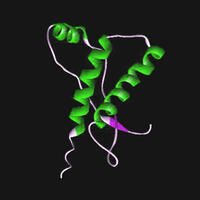What Causes CWD (Chronic Wasting Disease)
Chronic Wasting Disease (CWD) is caused by an abnormal protein, also known as a prion. The abnormal protein (prion) converts normal cellular protein to the abnormal form, which is not broken down or hydrolyzed by enzymatic reactions, resulting in accumulation of the abnormal protein and subsequent destruction of neurons that causes cytoplasmic vacuolation (holes in the brain). This progressive neurologic disease continues, ultimately ending in the death of the animal, either directly, or, more commonly, with the cervid being more vulnerable to predation (predators of all kinds including humans), exposure to the environment, collisions with vehicles, and entangling in fences. Prions are very resistance to environmental degradation; therefore, prions excreted by the body of the cervid contaminate the soil by binding with clay and become more infectious than the prions passed from animal to animal. Prions are not denatured (destroyed) by cooking meat; it takes temperatures higher than any stove or campfire to destroy prions.
Gultekin Tamguney et al. 2009, found that infected mule deer excrete CWD prions in their feces long before the infected animals show clinical symptoms. Animals were found to excrete infectious CWD prions beginning about 4 months after infection. Deer became symptomatic around 16-20 months after infection. It was estimated the deer excrete as many prions in the years they are alive than will have accumulated in their brains and nervous tissue at the time of death.
Prion











